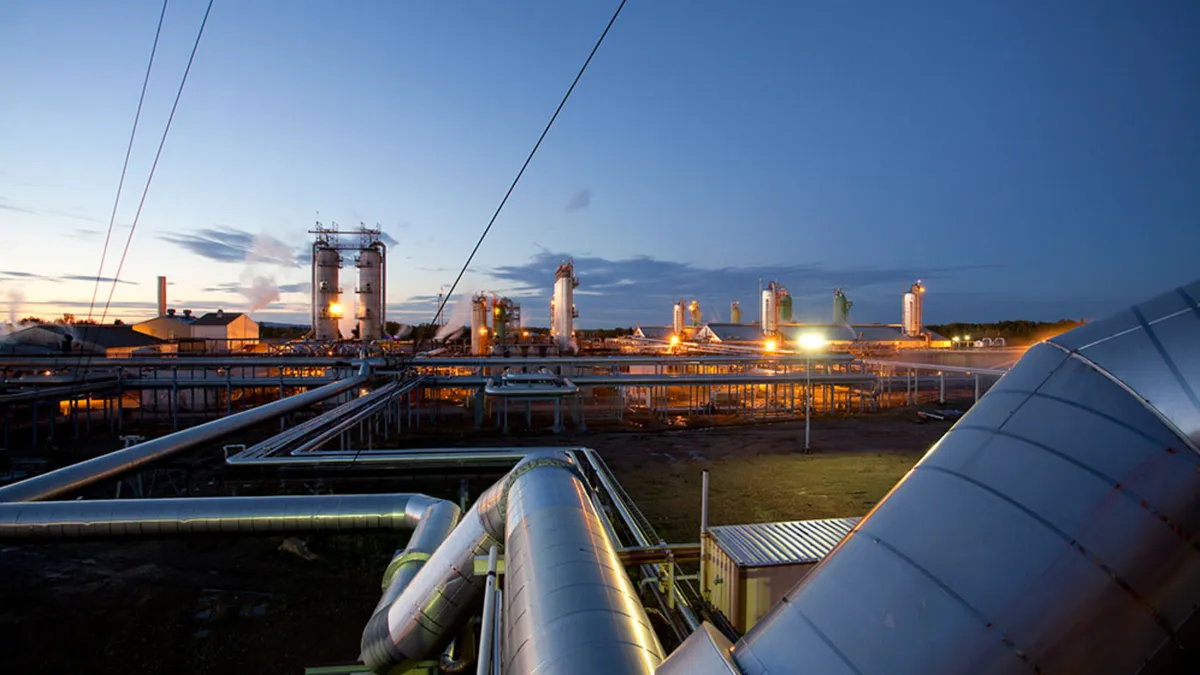Dive Brief:
- Connecticut's Department of Energy and Environmental Protection (DEEP) this week canceled a natural gas request for proposals, following court decisions that made spreading out the cost of pipeline development more difficult.
- But along with Massachusetts and Rhode Island, the states have tapped six large renewables projects totaling 460 MW to move forward to contract negotiations.
- The states are also preparing to name small scale renewable projects (less than 20 MW) that will also move ahead.
Dive Insight:
Connecticut's DEEP took a series of actions this week related to joint energy procurements with other New England states, canceling its bid for more gas supplies while moving ahead larger carbon-free energy projects.
The three states have selected projects representing 460 MW of clean energy, including proposals by Deepwater Wind, Antrim Wind, Ranger Solar, Cassadaga Wind, RES Americas and Ameresco. Later this week, DEEP also expects to make a decision on smaller renewables projects, with a maximum capacity of 20 MW.
“Our actions on the three energy procurement RFPs will protect the interests of Connecticut’s ratepayers while moving our state forward to best address the energy challenges that we face,” DEEP Commissioner Robert Klee said in a statement. “While we are not selecting projects under the natural gas RFP at this time, we are taking steps to secure additional clean energy resources that address gaps in our energy infrastructure."
Connecticut issued an RFP for gas capacity projects this summer, including incremental natural gas pipeline capacity, liquefied natural gas, and natural gas storage. Seven bids were submitted, but legal developments have put a hold on those proposals.
While the agency was evaluating bids, DEEP said "administrative decisions and a court ruling in other New England states limited the likelihood that the costs of projects would be shared among a substantial portion of the region’s ratepayers." The problem of inadequate gas infrastructure is "greater than one state can solve alone. Regional investment is necessary to ensure that no one state disproportionately bears the costs of addressing what is a problem endemic to our regional electric system," according to the agency.
In August, Massachusetts' Supreme Judicial Court blocked state regulators from approving contracts requiring electric utility customers to support development of gas pipelines. That decision has put pressure on Spectra Energy's Access Northeast project, which Eversource Energy and National Grid had signed on to support.
The project upgrades the existing Algonquin system to boost deliveries up to 925,000 dekatherms per day, enough for approximately 5,000 MW of electric generation according to the project site.















